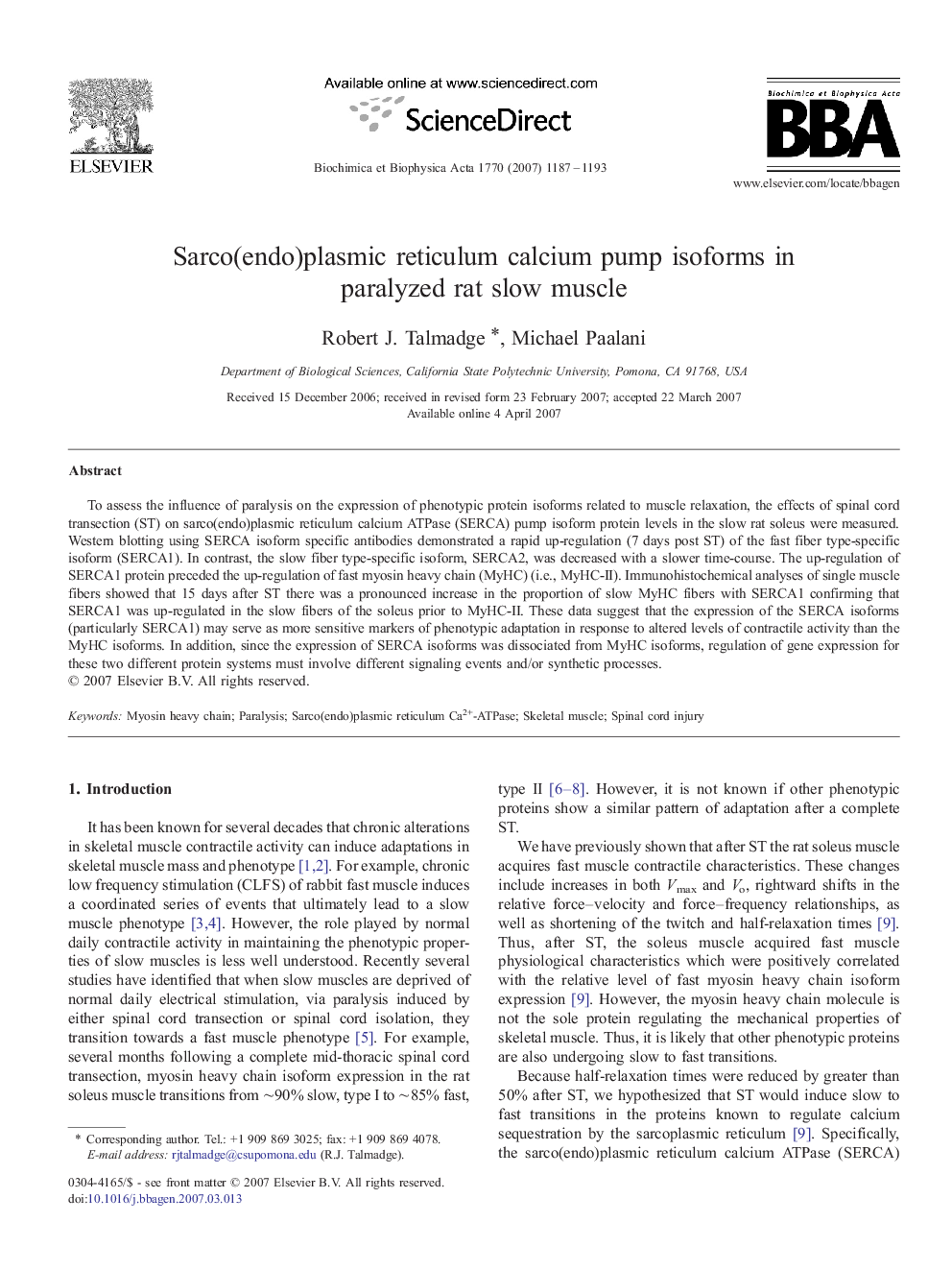| کد مقاله | کد نشریه | سال انتشار | مقاله انگلیسی | نسخه تمام متن |
|---|---|---|---|---|
| 1948596 | 1054702 | 2007 | 7 صفحه PDF | دانلود رایگان |

To assess the influence of paralysis on the expression of phenotypic protein isoforms related to muscle relaxation, the effects of spinal cord transection (ST) on sarco(endo)plasmic reticulum calcium ATPase (SERCA) pump isoform protein levels in the slow rat soleus were measured. Western blotting using SERCA isoform specific antibodies demonstrated a rapid up-regulation (7 days post ST) of the fast fiber type-specific isoform (SERCA1). In contrast, the slow fiber type-specific isoform, SERCA2, was decreased with a slower time-course. The up-regulation of SERCA1 protein preceded the up-regulation of fast myosin heavy chain (MyHC) (i.e., MyHC-II). Immunohistochemical analyses of single muscle fibers showed that 15 days after ST there was a pronounced increase in the proportion of slow MyHC fibers with SERCA1 confirming that SERCA1 was up-regulated in the slow fibers of the soleus prior to MyHC-II. These data suggest that the expression of the SERCA isoforms (particularly SERCA1) may serve as more sensitive markers of phenotypic adaptation in response to altered levels of contractile activity than the MyHC isoforms. In addition, since the expression of SERCA isoforms was dissociated from MyHC isoforms, regulation of gene expression for these two different protein systems must involve different signaling events and/or synthetic processes.
Journal: Biochimica et Biophysica Acta (BBA) - General Subjects - Volume 1770, Issue 8, August 2007, Pages 1187–1193